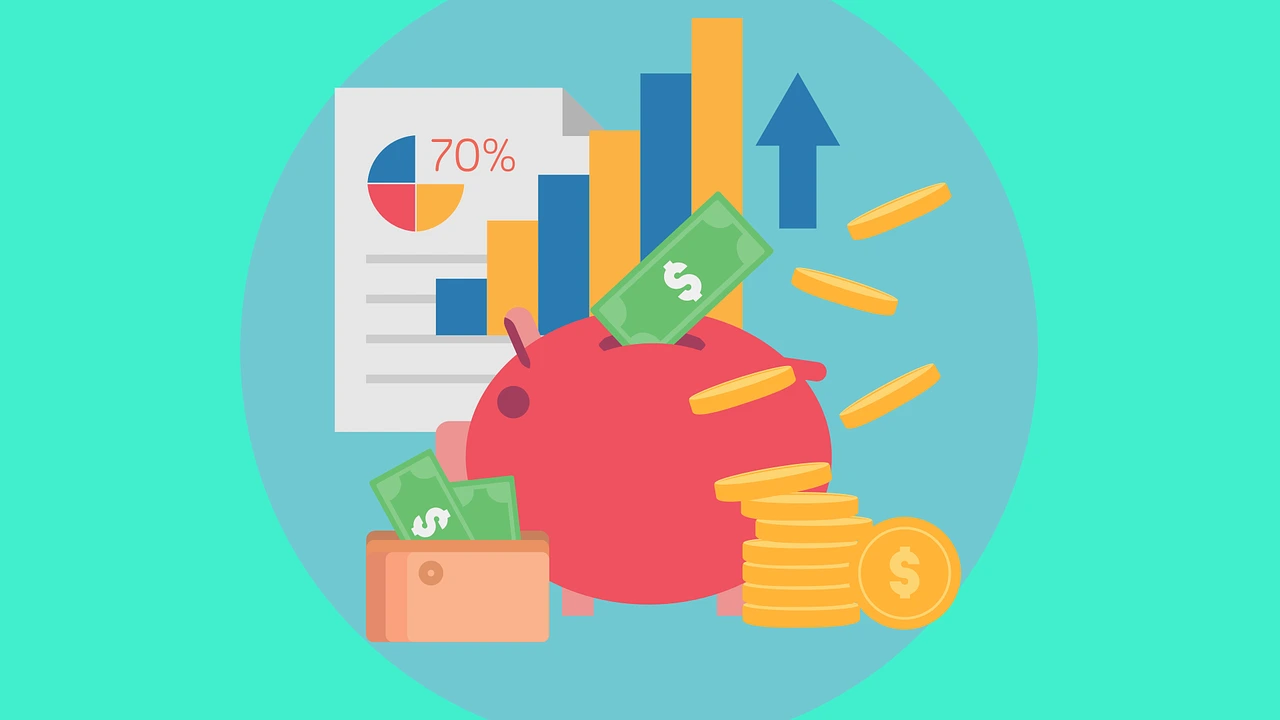Physical Address
304 North Cardinal St.
Dorchester Center, MA 02124
Physical Address
304 North Cardinal St.
Dorchester Center, MA 02124

Money habits to save can make managing your finances feel less like an uphill battle. Small, manageable changes in your daily routine can lead to significant savings without completely overhauling your lifestyle. In this article, we’ll explore 10 simple money habits to save that you can start practicing today to build financial security.
Before we dive into the specific money habits you can adopt, let’s first talk about why building strong money habits is essential for your financial well-being.
For many, saving money feels like an impossible task, especially when you’re living paycheck to paycheck. But here’s the thing: saving isn’t just about how much you earn, but about how you manage your money. It’s the small, consistent habits that ultimately create long-term financial stability.
Research indicates that almost 60% of Americans are living paycheck to paycheck. That statistic is alarming, but it also highlights how much potential there is for improvement. By developing simple yet effective money habits, you can break free from this cycle and start building a healthier financial future.
Money habits not only help you save but also reduce financial stress and provide a sense of control. They allow you to be proactive instead of reactive when it comes to managing your money. And over time, these habits compound, leading to significant savings, a solid emergency fund, and the peace of mind that comes with knowing you’re financially secure.

Tracking your expenses is one of the most effective ways to take control of your money. When you have a clear picture of where your money is going, you can identify areas where you’re overspending and make adjustments accordingly.
How to Do It:
By tracking your expenses, you’ll gain insights into your spending habits and can find areas where you can cut back, helping you save more without even feeling like you’re sacrificing anything important.
Automating your savings is one of the simplest ways to ensure you save consistently.When you make your savings automatic, it becomes a non-negotiable part of your financial routine just like paying rent or utility bills.
How to Do It:
By automating your savings, you’ll be able to put money aside each month without even thinking about it, and over time, you’ll build a strong financial cushion.
Paying yourself first means putting your savings ahead of all other expenses. This simple concept ensures that your financial future is secured before any discretionary expenses are made.
How to Do It:
The “pay yourself first” strategy ensures that savings become a habit, and you’ll be less likely to skip it when life gets busy. It also prevents you from spending money you don’t have, which can help you avoid unnecessary debt.

Without a budget, it’s easy to spend excessively and lose control of your finances. A budget gives you control over your money and helps you make intentional decisions about where your money goes each month.
How to Do It:
The key to sticking with a budget is making it realistic. It should be flexible enough to accommodate unexpected expenses while still keeping you on track with your savings goals.
When your income rises, it can be tempting to elevate your lifestyle. Whether it’s moving to a bigger apartment, buying a new car, or eating out more often, lifestyle inflation can quickly eat into your ability to save. Instead of inflating your lifestyle, commit to keeping your spending in check.
How to Do It:
By resisting lifestyle inflation, you’ll be able to save more even as your income grows, putting you on a faster track to achieving your financial goals.
It’s easy to make impulse purchases, especially when you’re walking through a store or scrolling online. Impulse buying can quickly add up and derail your savings efforts. One way to curb this is by shopping with a list.
How to Do It:
By sticking to a list, you can avoid the temptation to buy things you don’t need and keep your spending in check.
Subscriptions can silently drain your bank account every month. Whether it’s for streaming services, magazines, or apps you don’t use regularly, these small payments can add up over time.
How to Do It:
By cutting unnecessary subscriptions, you can free up more money to put toward your savings goals.

Studies show that people tend to spend less when using cash compared to credit or debit cards. Using cash creates a tangible connection to your spending, helping you stay mindful of your purchases.
How to Do It:
By using cash, you’ll be more conscious of how much you’re spending and less likely to go over budget.
Setting goals gives you a clear direction and motivates you to save more. Without goals, it’s easy to get sidetracked and lose sight of why you’re saving in the first place.
How to Do It:
Having a financial goal gives you something concrete to work toward, making it easier to stay disciplined with your savings.
An emergency fund is essential for financial security. It provides a cushion for unexpected expenses, such as medical bills or car repairs, and prevents you from dipping into your savings or going into debt.
How to Do It:
By having an emergency fund, you’ll be prepared for life’s surprises and avoid financial stress during tough times.
Now that you’ve learned the 10 simple money habits that can help you save more every month, it’s time to talk about how to stick to them. Consistency is key when it comes to building lasting money habits.
Accountability is one of the most effective ways to stay on track with your savings. Share your financial goals with a trusted friend or family member, and check in regularly to report on your progress.
You can also use apps or spreadsheets to track your progress. Set reminders to review your budget and savings plan, ensuring that you’re staying committed to your goals.
Saving money can feel like a slow process, but celebrating small milestones can keep you motivated. Whether you’ve reached a savings goal, successfully stuck to your budget, or paid off a chunk of debt, take time to acknowledge your progress.
Saving more money each month doesn’t require drastic changes—it’s about building consistent, manageable habits. By tracking your expenses, automating your savings, and making mindful spending decisions, you can start saving more without feeling deprived.
Remember, the key is consistency. The small habits you develop today will compound over time, leading to greater financial stability and a future where you feel secure and confident about your money.
To learn more about simple money-saving habits that can help improve your financial situation, check out Intuit’s article on how to save money and Be The Budget’s daily money habits for financial freedom here.
The best money habits to save more include tracking your expenses, automating savings, paying yourself first, sticking to a budget, and avoiding unnecessary subscriptions.
To start saving money, track your expenses, create a realistic budget, and automate your savings. Pay yourself first and make sure you’re consistently setting aside money each month.
Stay accountable by using tracking tools, celebrating small wins, and adjusting your goals as needed. Regularly review your progress to ensure you’re on track.
By following these 10 simple money habits, you can save more each month and work toward a secure financial future. Start today, and you’ll be amazed at how these small changes can make a big impact!